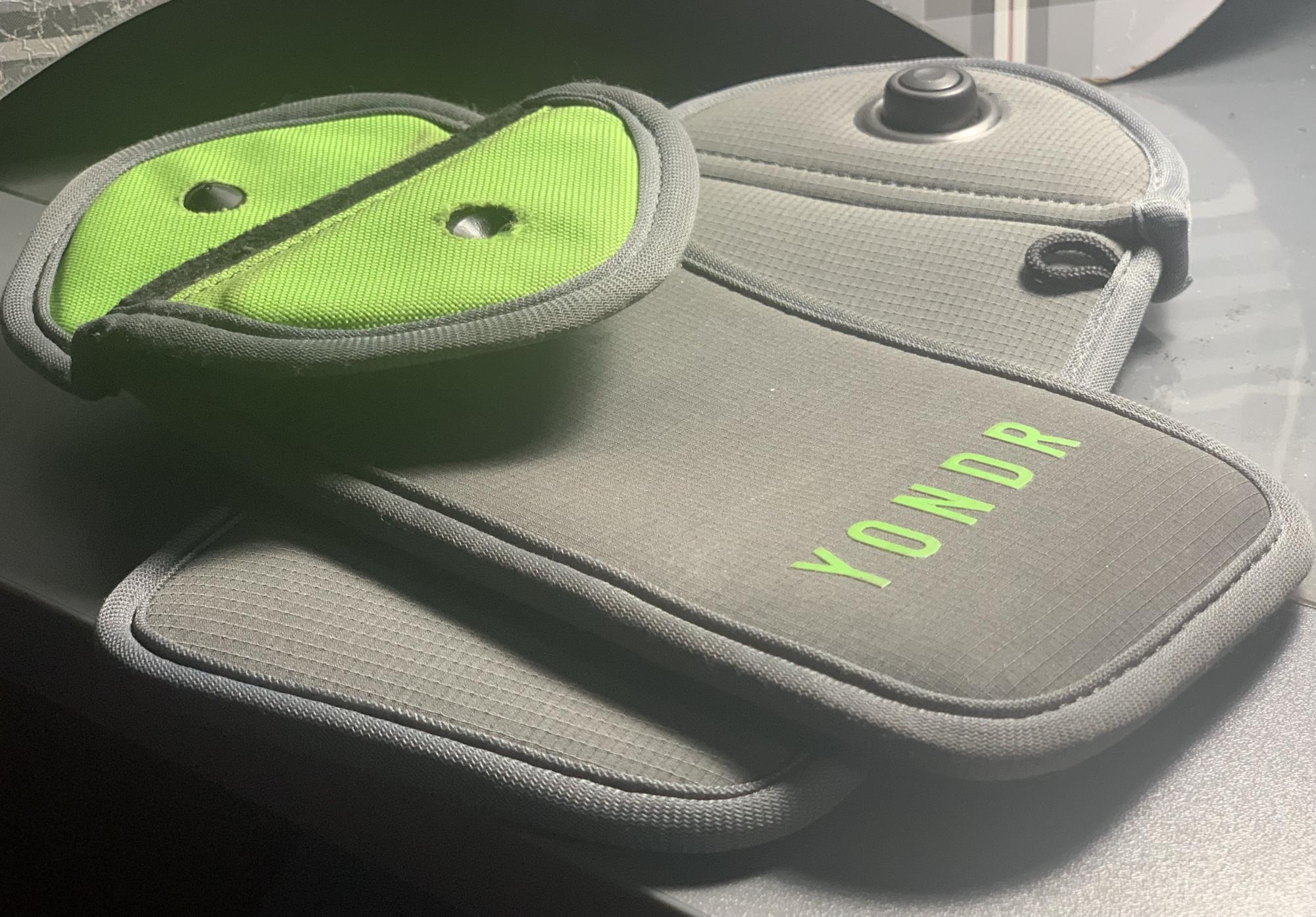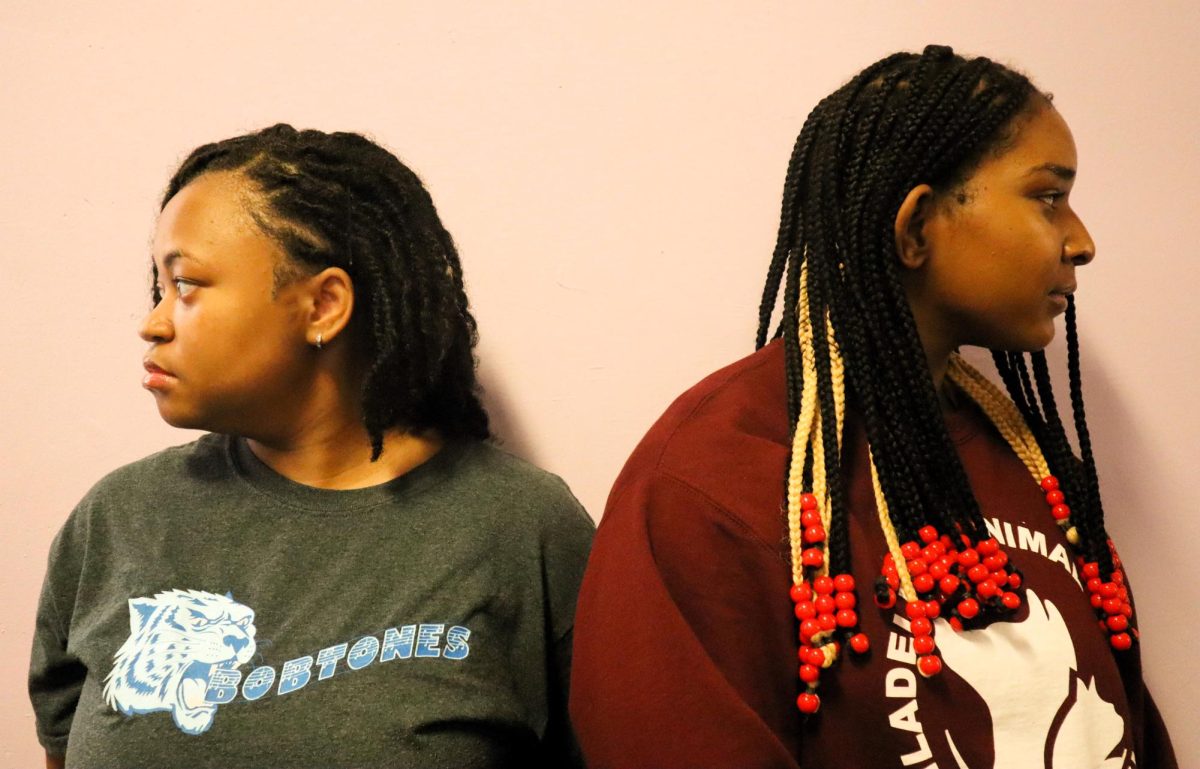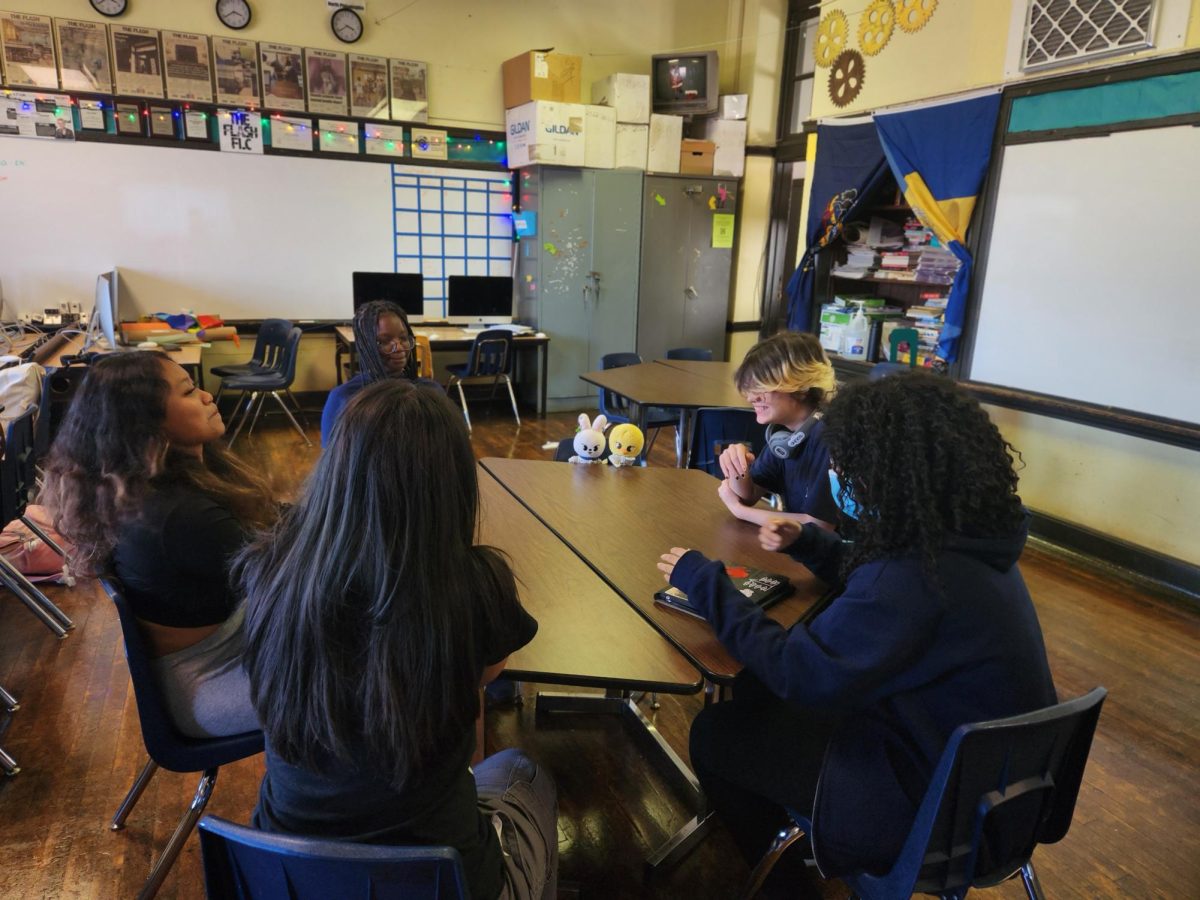At the beginning of the school year, there were rumors in Franklin Learning Center that FLC was considering using Yondr pouches to lock up students’ cell phones. The Yondr pouch is a tool where cellphones are put in a pouch to restrict the use of phones during school hours. A teacher and a student in FLC share their insight on whether FLC should consider Youndr pouches to be used.
The majority of people in FLC don’t know where this rumor has originated from but it seems appealing to people who have issues with cell phones and people who have no issues with cell phones during school grounds. A World History teacher Kimberly Musallam who is working in FLC shared her experience with cell phones from students and their performance of engaging with the lesson, along with how she thinks about the rumor of cell phones getting locked up in these pouches.
“It’s not that students do poorly in my class because they can’t do the work or they don’t understand it, it’s that they’re distracted and a distraction is a cell phone,” Musallam said. “I think that students that are using [cell phones] as a crutch or using it as a way to distract themselves because they don’t want to do the work or they’re bored and [students] think that it’s something to keep themselves busy on their phone. If you take away the ability I think that they would then be forced to focus on the work and I think that they would do much better.”
Musallam believes that if FLC were to have Yondr pouches it would be a big benefit for FLC as a school community, saying that scores would go up if students don’t have their cell phones during class. However, not everyone agrees that Yondr pouches would solve our school problems.
“I completely disagree with that method of discipline because what I think is [FLC] should give [students] like three strikes,” said Senior Kimberly Carroll. “If you see them on their phone ask them to politely put it away, because that’s their property. Technically…you have no right to [take cell phones] from [students] and confiscate whatever you want to do. Like it’s not your right.”
Some students believe that teachers should approach students in a way that allows students to put away their cell phones instead of the idea of Yondr pouches. Carroll believes that depending on the distraction level of the class if the teacher is telling the students to put their cell phones away harshly then that’s not the right approach but rather telling in a stern, gentle way, would be good while Musallam agrees with not having an aggressive approach.
“I don’t think that going at students hard is the way to solve this problem,” said Musallam. “ I would say that the phone does affect [students]… I had to repeat the entire question because they did not hear, I would give [their learning capabilities] a [4 out of 10].”
Carroll stated that, if you see a teacher and they’re clearly explaining the lesson and agenda, but you don’t know what to do because you are on your phone then that is a problem. Mussallam mentions having options can also be a solution to excessive phone usage in classes.
“I think that it would be helpful if students have the option of putting [their cell phones] in [the Yondr pouches],” said Musallam. “I understand concerns like safety so if something [were to happen] they need access to call then [allow students to have their phones available].”
Along with the concern of phones being a distraction in class, online usage being disruptive to students emotionally is another concern. According to the Pew Research Center in 2022
between the ages of 15-17, 32% of teenage girls and 24% of teenage boys have experienced two or more types of online harassment.
“The harassment online and just the excessive of having your volume too high, disrupting other students, bullying,” said Carroll. “All that stuff is what causes the extreme level of locking phones up. I know how to regulate [the usage of] my cell phone, in class because I know [that there are] restrictions based upon it.”
Musallam believes that students will find the ability to zone into the work instead of focusing on what people are saying on the internet if they put their cell phones away. Her concerns about phone usage reflect on whether or not FLC should restrict phones with Yondr pouches.
“I would be interested if [FLC] did a survey [about the usage of cell phones],” said Musallam. “If [students] really thought about [it and] reflected upon themselves [of] how much they use their cellphones in class, how do you think that they feel like [their cell phones] affect them? If they’re really honest with themselves, they would realize it would be a detriment.”








Buttons • Jan 5, 2024 at 7:47 am
This was very interesting. From the readers point of view you gave both sides of the same coin. It was interesting on going to certain people to see an idea of collecting phones or not.